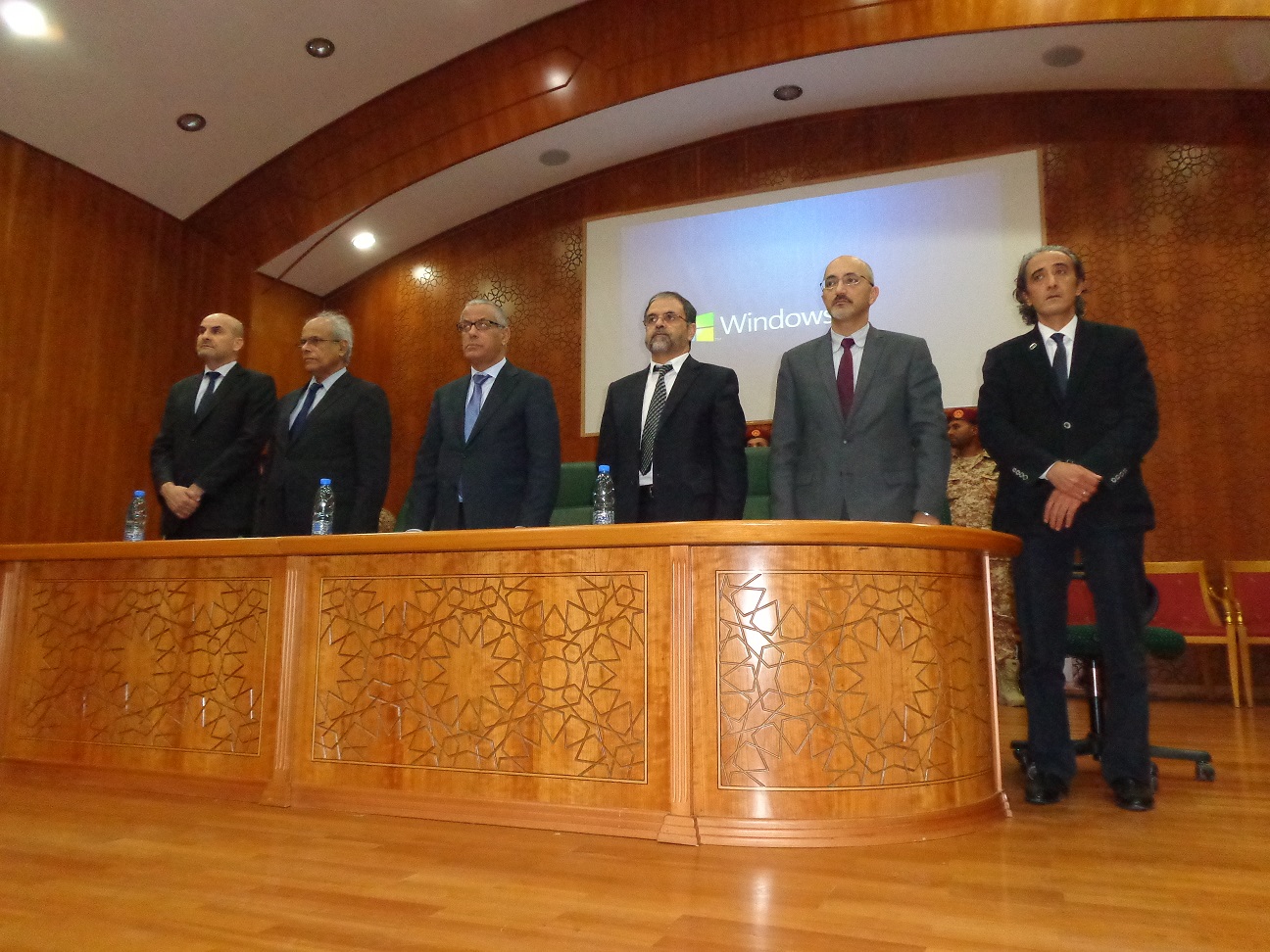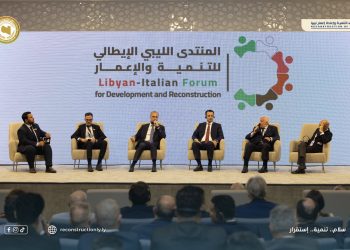By Sami Zaptia
Tripoli, 22 November 2013:
Within days of last Friday’s bloody incident in which nearly 50 peaceful demonstrators were killed and . . .[restrict]500 injured, the government sent out hundreds of official “regular” police and army to secure Tripoli and make the city’s residents feel safe.
The appearance of regular security forces all over the capital has been welcomed by Tripolitanians, many of whom have been blowing their car horns in support of the regulars whenever they drive by them on most road intersections.
However, the question that has been raised by many of the capital’s residents has been why have the authorities failed to use these regular security forces in the past, and why was the army not present at Friday’s demonstration to protect the civilian demonstrators against the armed militias?
Asked where were these regular army forces that now appeared in large numbers on Tripoli’s streets, Ali Sheikhi, the official Spokesperson for the Chiefs of Staff said that “these forces were always present”.
Asked why were they only used now, after the Gharghour incident, Ali Sheikhi said that the Chiefs of Staff “saw that we were entering a new phase of “officialdom”, without elaborating further.
By “officialdom” it has been interpreted that what the official Spokesperson for the Chiefs of Staff meant was that as of the Gharghour incident watershed, it is likely that from here on “regular” security personnel will be more visible than militias – if not exclusively instead of any militias.
Speaking live on Al-Nabba TV on Tuesday, Ali Sheikhi continued, saying that the army was “not informed to take part in Friday’s demonstration”, meaning that initially it was left up to the police to deal with the stewarding of a peaceful, civilian demonstration. We were only informed “after the demonstrators marched on Gharghour”, he added.
Ali Sheikhi admitted that unofficial militias, as opposed to most militias which are officially recognized by the state and paid wages, including the Gharghour-based Misratan militia, were “not participating in enforcing security, but were worsening it. Therefore their departure will improve security”, he added.
However, Ali Sheikhi continued, saying that the “recognized” militias, such as the Gharghour-based Misratan militia, were contributing to security.
The Chiefs of Staff man would not, on air at least, go as far as to condemn or admit that even the “recognized” militias contributed to Tripoli’s insecurity – a view held by many Tripolitanians.
Nevertheless, he went on to add that he hoped that these “recognized” militias would – as per Laws 27 and 53 – join the official security forces, the police and army, as individuals and not as whole groups. Failing that they must either leave the capital or disband as the government has said that it will cease paying all militia’s wages after December 31 2013. [/restrict]







